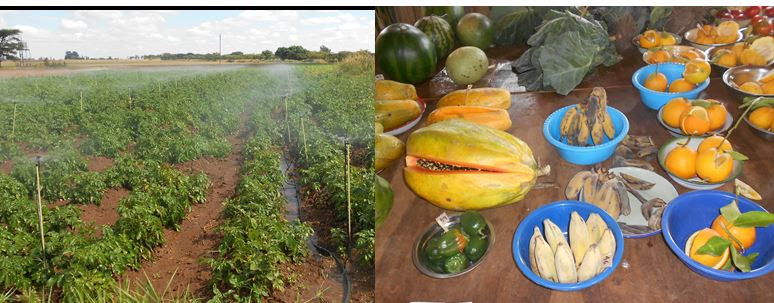By Charles Dhewa
Days of doing research for its own sake are numbered in developing countries. The same applies to an enduring tendency by researchers to be satisfied with publishing research findings into journals. Many African researchers are waking up to the fact that academic excellence will not solve teething challenges like mass poverty and unemployment among graduates. From all the investments that have gone into agricultural research in Africa and other developing parts of the world, there has not been meaningful efforts to lay strong foundations for commercialising research findings and knowledge.
From the laboratory mentality to a commercial mentality
While it is known that agricultural researchers are not commercial experts, smart partnerships can assist in commercialising research results. Across Africa, efforts to commercialise research have mostly revolved around government research stations working with private seed companies who would reap the benefits of government investments in public research. Such relationships have not translated to substantial benefits for government research institutions which continue struggling to sustain their operations.
Much talk about impact pathways has not seen public research institutions being assisted to go beyond demonstration plots and trials to visible pathways for upscaling their research findings into commercial products. Most research findings continue ending up in journals and academic theses. Lack of a commercial pathways has seen several cases where farmers and consumers fall in love with bean and potato varieties bred at public agricultural research institutions being disappointed by unavailability of enough seed for mass production. This is one of many ways in which research institutions squander opportunities to upscale and fully commercialise their research results into demanded products.
While government research institutions are largely considered public entities, there should be a limit to which their products and knowledge should remain public. For instance, there is another part where their knowledge should be valued and paid by users like when they produce seed should be bought by farmers and other value chain actors. The same way artists like musicians are paid through royalties should be the same way research institutes are allowed to craft cost-recovery business models for sustainability.
It is not true that smallholder farmers cannot pay for research or knowledge
The notion that smallholder farmers cannot pay for research is retrogressive. If farmers can pay to get national identity particulars like passports or to be treated at a hospital, who says they cannot pay for seed and knowledge? When farmers begin accessing knowledge and information from a local research institution or knowledge centre, they become members of knowledge ecologies that support research institutions. Likewise, when researchers are adequately informed by users, pathways for redistributing relevant knowledge and products emerge organically. Such sharing contributes to community resilience.
When citizens continue to expect free knowledge, products and services from government they lose their right to complain about receiving below par services from government. All value chain actors including farmers should pay for knowledge. More importantly, it is critical to separate public information from private information so that farmers who want information for subsistence can be separated from those interested in commercial information that can only be assembled from many actors.
Publishing is not a sufficient indicator of knowledge and success
Many African researchers are beginning to realise that their performance and prestige as researchers cannot continue to be expressed through number of publications. They are also starting to question why scientific ideas have to continue being shared in the form of papers. More importantly there is some emerging consensus to the effect that although publishing is important it remains largely foreign to African countries where knowledge travels more through relationships, trust and networks than publications. To that end, livestock and seed breeders cannot continue to be more famous for producing papers about their research than producing and commercialising their research findings into tangible products.






